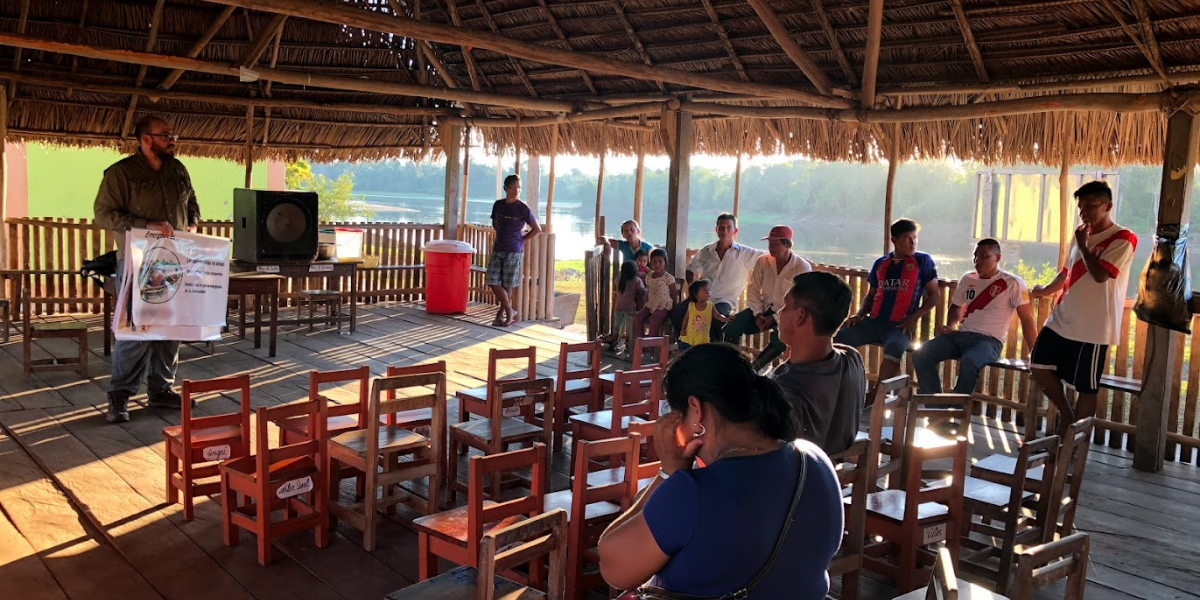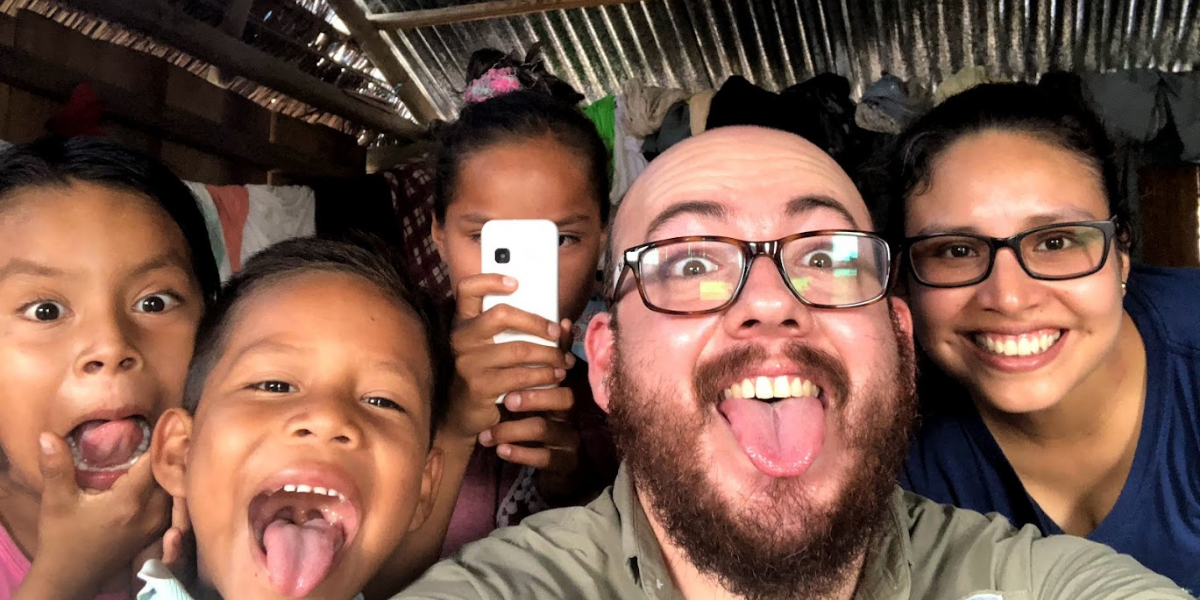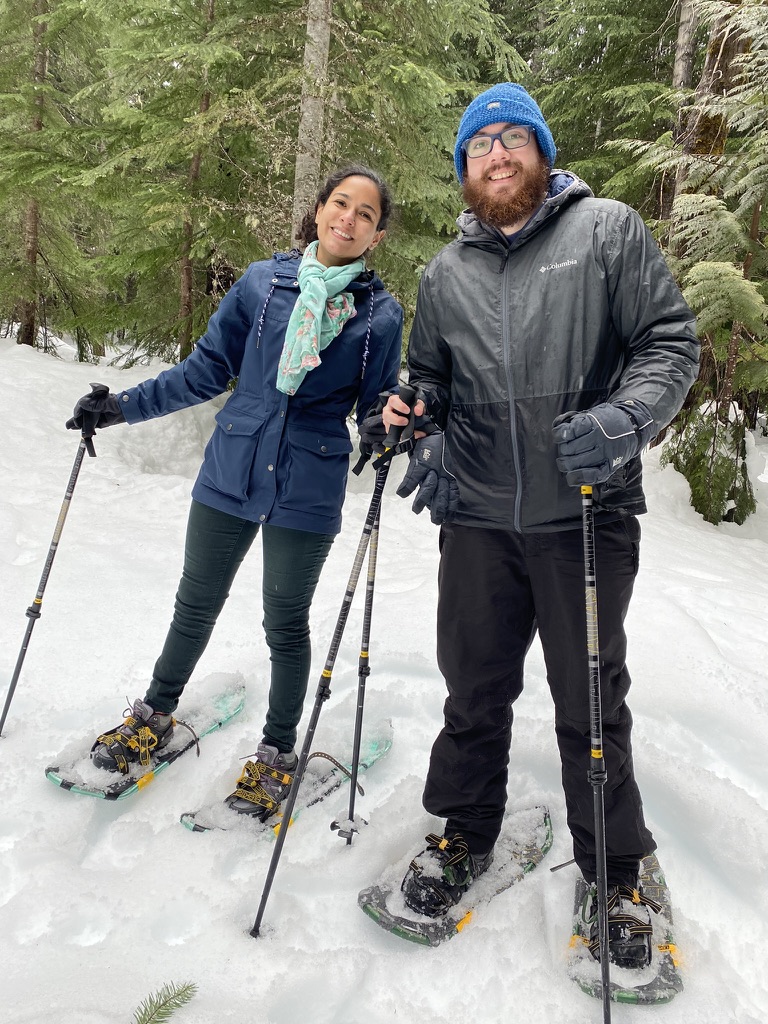
Horacio Chacon Torrico with Mt. Rainier in the background
In March of 2021, Horacio Chacon Torrico arrived in Seattle to begin his second year of graduate studies at the University of Washington School of Public Health, after having completed the first two quarters remotely from his home in Lima, Peru. Within no more than a week of arriving, he received his first dose of the COVID-19 vaccine. But as he scrolled through his Facebook feed, he saw posts from friends in Peru who grieved their lost loved ones from the pandemic.
Chacon Torrico felt guilt at having so easily received his vaccine, when so many from his home country were suffering. But he also felt a resolve to understand why. Why did Peru have the highest mortality rate per capita from the pandemic? And why were so many people around the globe being forgotten?
These questions have fueled Chacon Torrico’s studies during his master’s in global health program. Chacon Torrico is interested in the intersection of technology, data, and public health, and how to better use data to reach communities in middle- and low-income countries. So many human lives and public health questions are ignored when data is used to make broad assumptions about the health of a population. That’s why he wants to better utilize data to serve those who have been neglected, especially in remote areas like the Amazon jungle, where he has worked.
“There are a lot of people that are being forgotten because of averages, so that's what I want to do, find solutions for global health to measure at the finest resolution, the health of people who are forgotten,” he said.
In recognition of his academic excellence and commitment to public health, Chacon Torrico was awarded the 2022 Gilbert S. Omenn Award for Academic Excellence, the most prestigious, School-wide recognition for graduate students.

“Horacio is a rarity in the data world in that he combines a nuts-and-bolts understanding of data systems with a deep understanding of the human element of these systems,” said Stefan Wiktor, clinical professor in the Department of Global Health. “In other words, he never loses sight of the fact that in public health, data is about people: the people providing the information and those using it.”
Before Chacon Torrico came to UW, he was a physician in Peru and studied biomedical informatics to understand health information systems. He first fell in love with data when he worked at a big tertiary hospital in Peru as a medical data analyst and learned how to answer big public health questions with data from public and electronic health records.
He also saw how important data could be for underserved communities when he worked in the Amazon jungle on a program called Mamás del Río (Mothers of the River), during his master’s studies in Peru.
There, Chacon Torrico was tasked with creating a framework for data collection to help support maternal and newborn health in remote areas, where traveling to the nearest city with a health center required a 5-10 hour boat ride. Instead, community health workers used tablets to track everyone who was pregnant, their risk levels, and share tailored messages for each stage of pregnancy and postpartum. Without these data collection tools, there would have been no way for health workers to have wide-reaching support for maternal health in these remote communities, Chacon Torrico said.
There’s also a lot that global health can learn from these communities. On a 110 degree day, Chacon Torrico was working in one of these villages when he heard someone shout, “Fire!” A building was burning. While there were only 100 people in the community, they quickly formed a bucket brigade to pass water from the river up to the building to extinguish the fire.

But that’s not what happened during COVID-19, Chacon Torrico said. The global community did not work together to extinguish fires burning around the world from the pandemic. Many people and places were left to fend for themselves.
Getting the chance to work collaboratively with people from around the world has been one of the most important things about his experience in the global health program, he said. He’s learned more thanks to the diversity of his cohort, including students from South America, Africa, the Middle East, and North America.
“The experiences and perspectives that everybody carries make the program and learning experience more insightful and interesting,” Chacon Torrico said. “If you research and do global health from only a U.S. perspective – and this has to do with colonialism – you actually aren’t doing global health. I’m proud of being part of such a diverse and rich environment here.”
Starting his studies in a remote environment during the pandemic was one of the most challenging parts of his graduate studies, as well as battling imposter syndrome. His advice for other students is to remember that you belong.
“With imposter syndrome, you think that people know more than you, that you are not a big deal, and that everyone is doing so much and you're not,” he said. “But I will tell everyone, you are doing great. I struggle with imposter syndrome myself and think I'm not doing enough, but it’s not true. It’s just a voice in your head talking.”

In addition to his research on Peru and COVID-19, Chacon Torrico also worked as a research assistant for the International Training and Education Center for Health (I-TECH), work which helped fund his graduate studies. He was part of the Zimbabwe HIV Care and Treatment project, and worked closely with the Zimbabwe team to analyze information from data-entry modules which reported on how programs operated across 400 health facilities in the country.
“Horacio has shown great commitment and leadership in public health, both in the academic community, his homeland and in communities served by the project in which he has worked at I-TECH,” said Bernardo Hernandez Prado, Professor in the Institute for Health Metrics and Evaluation.
While his thesis asks what happened in Peru during COVID-19, a year of researching the question has only revealed more questions, he said. Using better data analysis to address these public health challenges will inspire the work of his doctoral program, which he begins next academic year. Chacon Torrico’s doctorate will be in global health-health metrics and evaluation, with funding for four years to work as a research assistant at the Institute for Health Metrics and Evaluation.
Most importantly, he won’t forget the reason that drives his passion for public health data.
“Every row in a data set represents a human life, or a disease, or some problem,” Chacon Torrico said. “I think we forget that, and I try not to.”